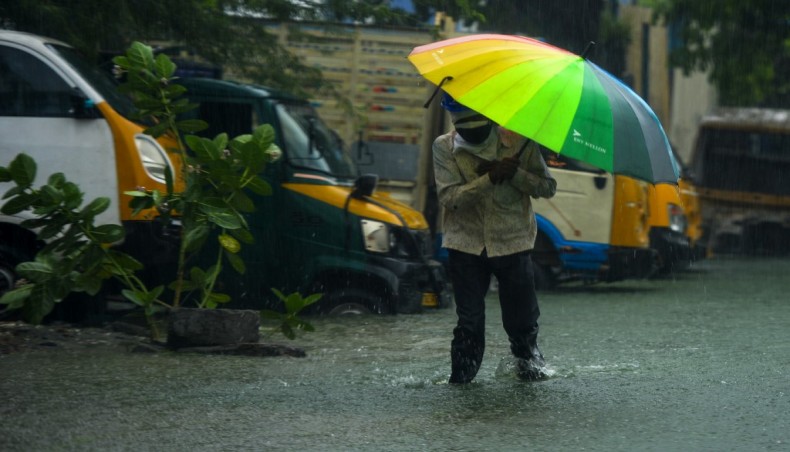India's Tamil Nadu braces for Cyclone Nivar
Local Indian authorities banned public gatherings and closed shops as more than 1,000 rescue personnel mobilised against a powerful cyclone barrelling towards the southeastern coast, bringing heavy rains and strong winds.
Cyclone Nivar is set to cross the coasts of Tamil Nadu state and the small territory of Puducherry as a ‘very severe cyclonic storm’ late Wednesday, the Indian Meteorological Department said.
Parts of Andhra Pradesh, a coastal state north of Tamil Nadu, are also forecast to be slammed by the cyclone. A ‘very severe cyclonic storm’ is the fifth-strongest category on the IMD's scale of seven storm types.
‘This will slowly intensify, maybe tonight or tomorrow, and turn into a very severe cyclonic storm with wind speeds of around 120 kilometres per hour (75 miles per hour) and gusting up to 145 kilometres per hour,’ IMD's director-general Mrutyunjay Mohapatra told reporters in New Delhi.
Rainfall is also expected to inundate the region, with some areas bracing for very heavy downpours, he added.
More than 1,000 personnel from the National Disaster Response Force have been deployed to assist local efforts on possible evacuations of residents from vulnerable coastal areas.
Tamil Nadu's chief minister Edappadi K. Palaniswami declared Wednesday a public holiday and said it could be extended.
The lieutenant governor of Puducherry, Kiran Bedi, said public gatherings would be banned from late Tuesday until early Thursday.
Shops in Puducherry, except those for essential services like pharmacies and petrol stations, were to be shut until the cyclone passes.
In parts of Mahabalipuram, about 60 kilometres from Tamil Nadu's capital Chennai, local fishermen dragged their boats to safety along the coast.
The cyclone's centre is expected to pass some 175 kilometres northeast of Sri Lanka's northernmost Kankesanthurai coastal town early Wednesday.
Fishermen in the northern area were advised not to go out to sea. No evacuation orders were issued but heavy rains were forecast, particularly in the island nation's north.
More than 110 people died after ‘super cyclone’ Amphan ravaged eastern India and Bangladesh in May, flattening villages, destroying farms and leaving millions without electricity.
News Courtesy: www.cnn.com











